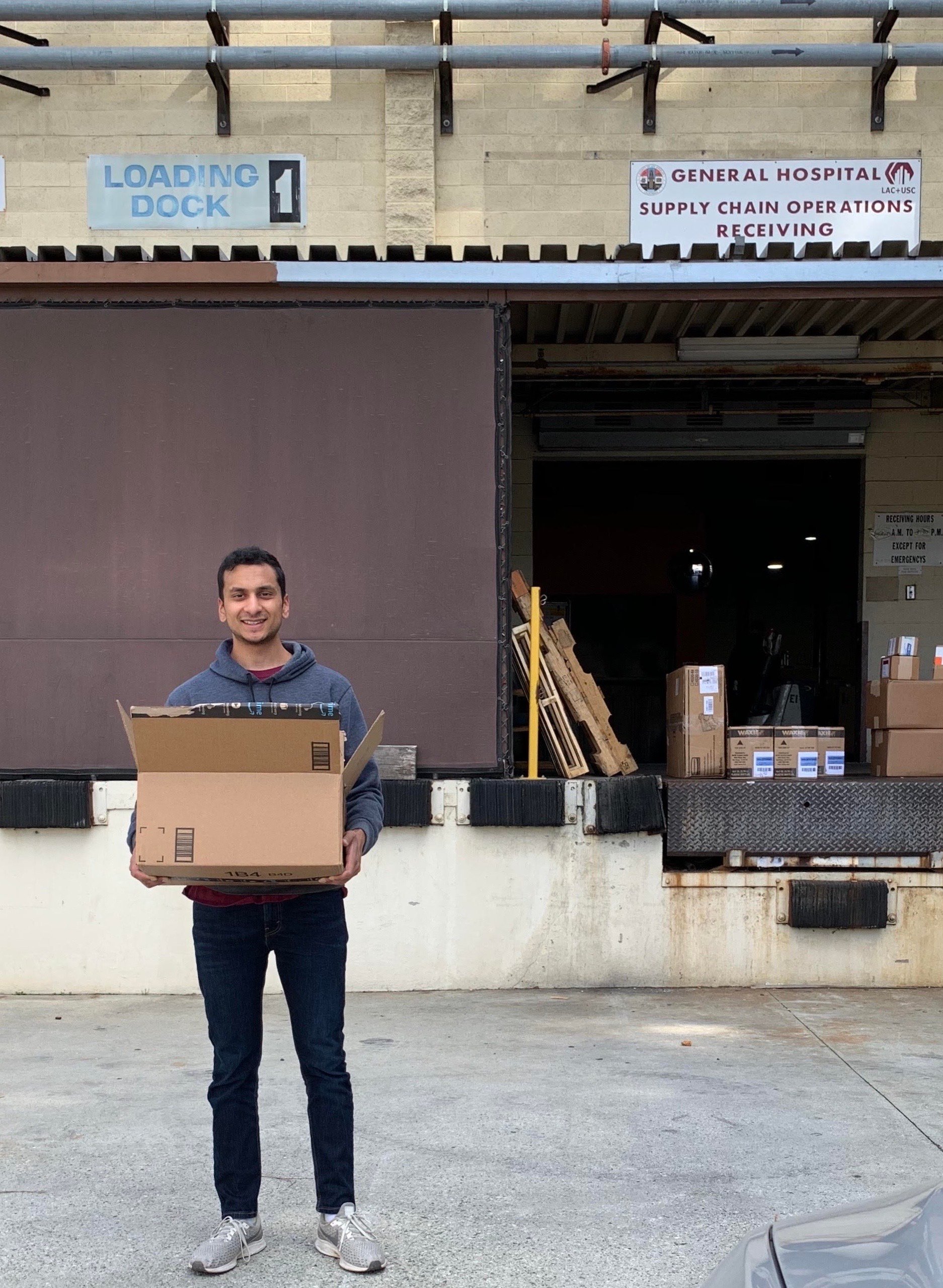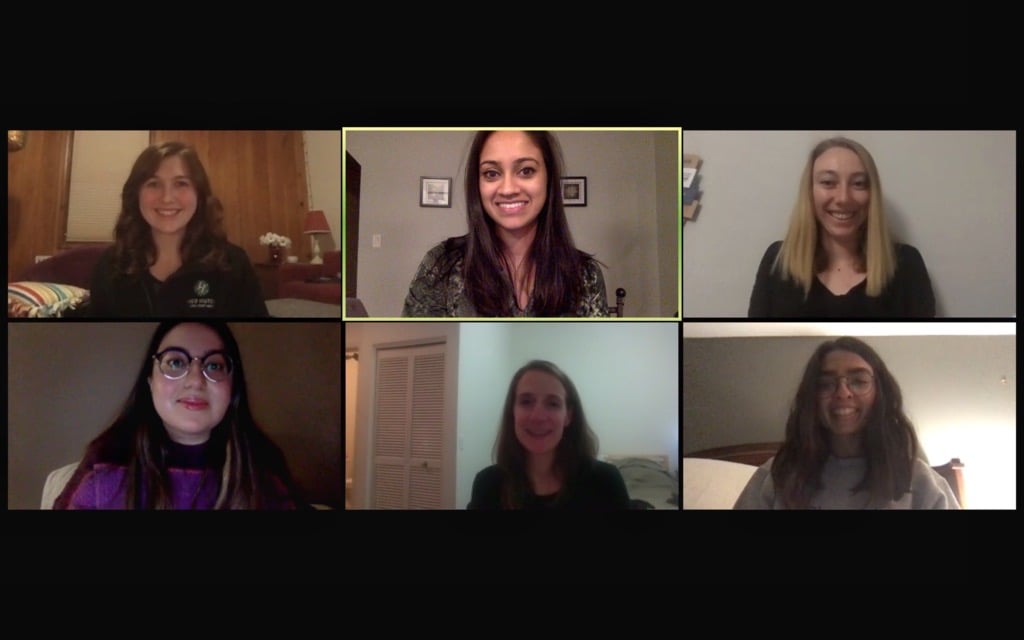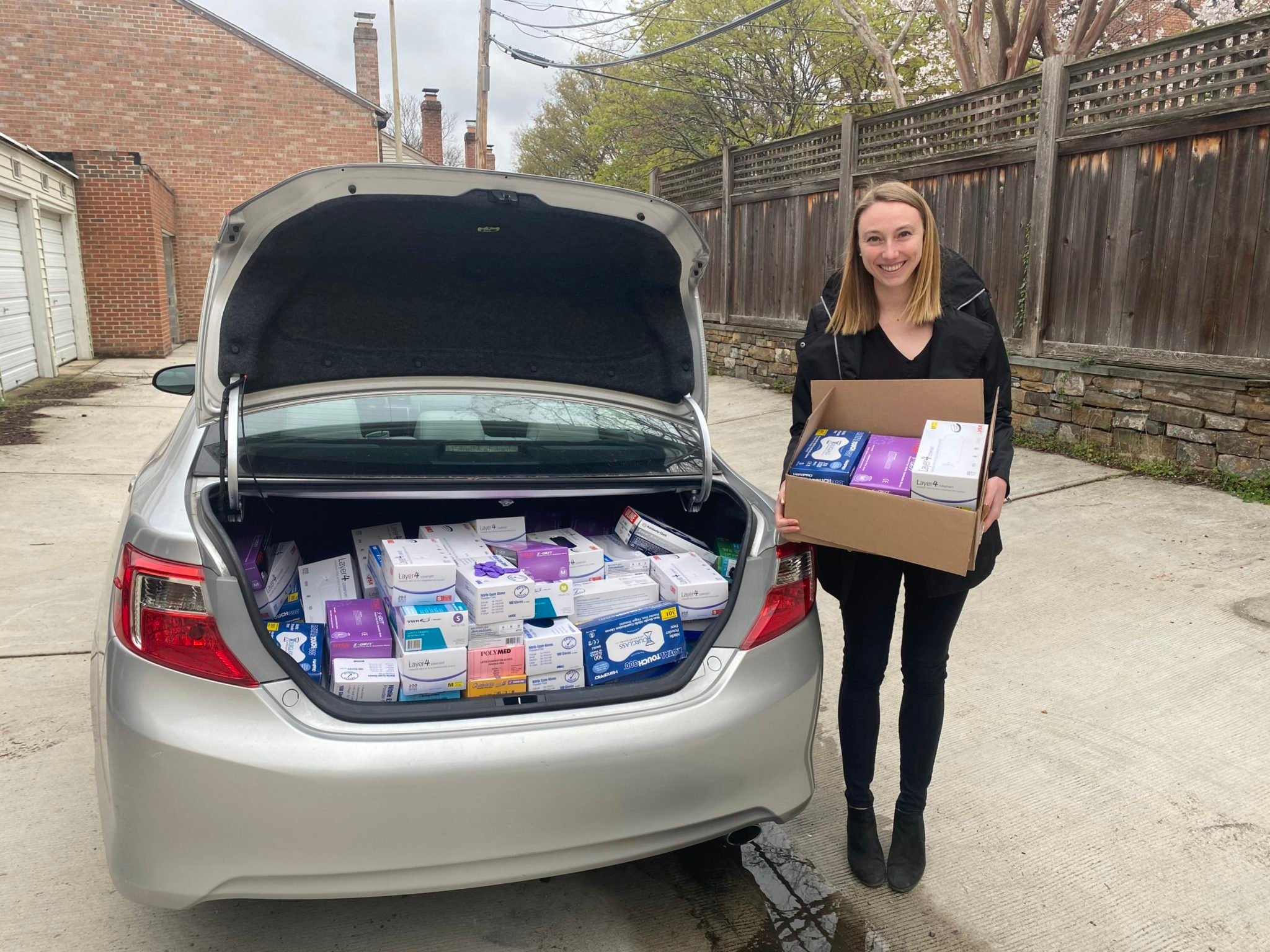About Coronavirus 2020
Washingtonian is keeping you up to date on the coronavirus around DC.
Unable to scrub up but eager to help the healthcare community, a group of Georgetown medical students started MedSupplyDrive, a nonprofit that collects protective gear for hospitals across the country.
The effort was sparked by a text from Dr. Debjeet Sarkar, an emergency doctor at Howard County General Hospital. On March 17, the doctor reached out to Georgetown med student Hannah Day to describe the dire personal protective equipment (PPE) shortages at hospitals.
Day shared the message with fellow third years Melissa Baker, Teju Peesay, Allison Rooney, Adaah Sayyed, and Zuby Syed. The students had just received a recommendation from the Association of American Medical Colleges to put their clerkships on hold.
“For us to be pulled out at that specific time was really disheartening because we wanted to be involved, especially as the pandemic was becoming more and more of a problem,” says Syed.
Armed with a new mission, the students set up MedSupplyDrive to gather protective equipment like masks, non-latex gloves, and bleach for hospitals. Within days, their movement kindled interest outside the District.
An appeal from those on the front line: “Please consider donating unopened supplies from your home or research lab to your nearest hospital.” https://t.co/v2jihbPCas
— Beto O'Rourke (@BetoORourke) March 20, 2020
In response, the organization has expanded into a volunteer network in 37 states and the United Kingdom. Like the MedSupplyDrive founders, many of the 341 volunteers are med students from more than 60 different schools.
Regional and city coordinators manage volunteers on the local level. Coordinators share resources with volunteers like a master list of businesses to solicit for supplies—spots like nail salons, construction sites, and tattoo parlors.

Once volunteers identify a business with protective gear, they reach out to secure a donation. Volunteers practice social distancing through no-contact pick ups, and then drop off supplies at local hospitals. If nearby facilities have an excess of equipment, the PPE is shipped to a hotspot like New York.

Although their clerkships are paused, Syed says the supply drive has given organizers experience mobilizing during a crisis—an important skill for doctors in any field.
“This med supply drive and the mission of our organization has helped us realize that no matter what specialty you’re in, you’re going to have to understand the needs of your community and learn how to respond to them,” says Syed. “The lessons and tools we’re learning and applying now are applicable to a lot of different specialties.”
MedSupplyDrive is currently accepting volunteers and donations.



















